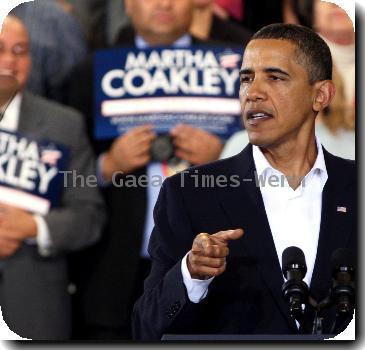After deciding on awards for 9/11 victims, corporate CEOs, Feinberg takes on Gulf spill
By Karen Matthews, APWednesday, June 16, 2010
Pay czar and 9/11 arbiter takes on oil spill money
NEW YORK — He was given the delicate task of putting a dollar figure on the life of each Sept. 11 victim and trimming paychecks at companies that got taxpayer bailouts.
Now the federal government has given Kenneth Feinberg a new job overseeing a fund to pay the victims of the massive oil spill in the Gulf of Mexico.
President Barack Obama announced Wednesday that BP would set aside an initial $20 billion and that Feinberg would administer the fund to oil spill victims.
“This is about accountability. At the end of the day, that’s what every American wants and expects,” Obama said.
Feinberg, 64, has become the go-to guy when the government needs to distribute money while appearing impartial.
He also has overseen payouts for victims of Agent Orange, is managing a multimillion-dollar settlement for ground zero workers exposed to toxic dust and set guidelines for paying top corporate earners as Obama’s pay czar.
Named to head the Sept. 11 Victim Compensation Fund after the worst terrorist attack in U.S. history, Feinberg had to weigh applications from victims’ families and distribute awards from a $7 billion-plus pot based on an estimate of what each victim would have earned in a lifetime.
Family members complained that he was cold and aloof in the initial weeks after the attacks.
“At the beginning he was telling families ‘My way or the highway,’” said Charles Wolf, whose wife died at the World Trade Center. “He had a very poor bedside manner.”
But Wolf said Feinberg grew in the job and ended up “bending over backward” to get victims’ families to apply to the Sept. 11 fund. In the end, 97 percent of the families applied to the fund; the average payout was $1.8 million.
“He’ll approach this thing with firmness,” Wolf said. “I’m very pleased.”
Sally Regenhard, whose firefighter son earned far less than the financial industry professionals who died at the trade center and received a lower payout, said the process Feinberg used was unfair.
“It really created a kind of caste system for human beings,” she said. “I know that (Feinberg) kept on saying that he had to go by the guidelines, but don’t accept guidelines if there’s inequity in there.”
In his 2005 book, “What Is Life Worth?: The Inside Story of the 9/11 Fund and Its Effort to Compensate the Victims of September 11th,” Feinberg wrote that the Sept. 11 fund was “the single most difficult challenge I had ever confronted in my 30 years as a lawyer.” He wrote he wanted everyone to participate in his fund’s payout “rather than have them pursue a costly, time-consuming, and emotionally wrenching remedy through the courts.”
The oil-spill fund could be more complicated to administer than the Sept. 11 fund, which had a finite number of potential claimants. The eight-week disaster in the Gulf is jeopardizing the environment as well as the livelihoods of tens of thousands of people across the coastal areas of Louisiana, Mississippi, Alabama and Florida.
Feinberg didn’t immediately return a message left by The Associated Press on Wednesday.
After the 2008 financial meltdown, the federal government tapped Feinberg to oversee pay for top executives at the banks and auto companies that received the biggest bailouts, setting compensation packages for the top 25 earners at each company and pay guidelines for the next 75 top earners. He joked that he loved “jobs that seem so hard that they have a low bar for success.”
Feinberg was put in an “impossible position” as pay czar, said Douglas Elliott, a former investment banker and fellow at the Brookings Institution.
The public wanted him to slash bank compensation, but Feinberg needed the banks to pay well enough that they could retain top employees and repay the government. Elliott said Feinberg was less effective at influencing the pay practices of other companies — something he and the administration had hoped to do.
“I don’t know whether someone else could have done better,” Elliott said. “But his job was effectively impossible, so it’s just a question of how dissatisfied you’re going to be with somebody in that position.”
In one notable dispute, the newly appointed CEO of American International Group Inc., Robert Benmosche, told his board he was ready to quit over Feinberg’s pay policies, saying it was hard to retain top employees.
Yet Feinberg had approved a pay package worth $10.5 million for Benmosche — many times the flexible $500,000 cap for those companies. It was the largest package he approved.
Associated Press writers Daniel Wagner in Washington and Marc Beja in New York contributed to this report.
Tags: Barack Obama, New York, North America, Oil spill, Personnel, United States

